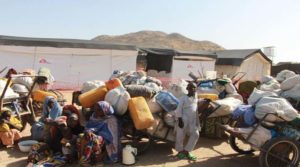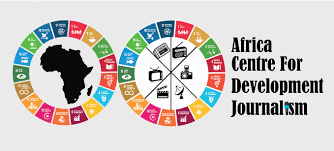Nigerian refugees being forcibly returned from Cameroon, says MSF

Violence and insecurity continue to force people off their homes in remote parts of northeastern Nigeria, as new waves of displaced persons continue to arrive as Nigerian refugees are being forcibly returned from Cameroon, says the global medical charity, Médecins Sans Frontières (MSF).
Over 11,300 people have arrived in Pulka, a town close to the Cameroonian border, since January, which has swelled the town’s population to more than 42,000, increasing the town’s population by one-third and placing further pressure on already overstretched resources.
In Banki, another town close to the Cameroonian border, MSF said it had on several occasions, witnessed Nigerians who had sought refuge in Cameroon being returned home by the Cameroonian military.
“We had been living in Kolofata (Cameroon) for more than a year and one day they just decided to send people back to Nigeria without explanation. We did not ask them to return us to our country: they forced us. We didn’t have a choice,” a Nigerian refugee in Banki told MSF.
On daily basis, displaced people continue to arrive in the isolated town of Rann, and the town’s population has grown by around 10, 000 in the past three months. In Dikwa town, more than 2,000 newly displaced persons were registered in the last two weeks of March, alone.
“Large movements of populations continue almost daily, due to attacks by Boko Haram, military operations and people searching for food and basic services,” says Himedan Mohamed, MSF’s head of mission in Nigeria.
The people who arrive in the bigger towns of Pulka, Rann or Dikwa were mostly from areas inaccessible to humanitarian organisations. They are vulnerable, often in a poor state of health, and almost entirely dependent on aid. And their difficulties are not unconnected with the movement restrictions enforced by the military on parts of the region which have made farming almost impossible.
“These people face growing needs for shelter, food and water. If this is not addressed and people continue to arrive, the situation will quickly deteriorate even further,” says Gabriel Sánchez, MSF’s operational manager in Nigeria.
With the exception of a few towns, most of the eastern parts of the state of Borno remain out of reach for aid organisations due to insecurity. Most aid agencies work largely from the state capital, Maiduguri, and only a few are able to operate in a continuous manner in eastern Borno where assistance is needed the most.
“People have absolutely nothing,” says Silas Adamou, MSF’s project coordinator in Rann. “They are living on only five litres of water per day in Rann and are forced to collect more from puddles.”













